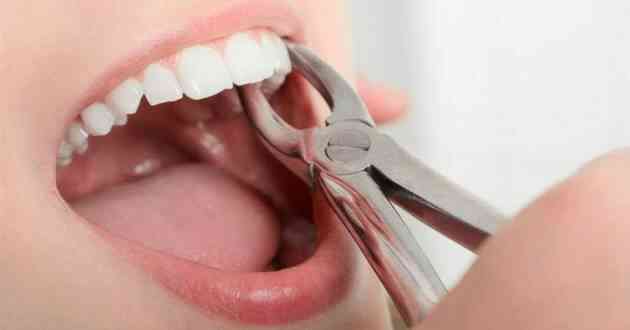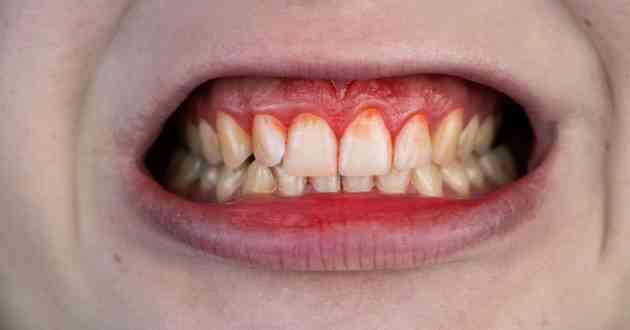Wisdom Tooth Removal & After Care
- - Category: Dental Care
- - 22 Mar, 2024
- - Views: 3
- Save
Everything You Need to Know About Wisdom Tooth Removal
Are you experiencing pain in your gums and jaws? Is it difficult for you to open your mouth fully or chew your favorite food? It might be possible that you are dealing with wisdom teeth troubles. Wisdom tooth removal is a common dental procedure that many people undergo because their wisdom teeth cause more harm than help. In this blog post, we will cover everything from the reasons why one may need wisdom tooth extraction to the available options for treatment, recovery tips, and aftercare. Keep reading to get all the details about what you need to know about wisdom tooth removal!
What are Wisdom Teeth?
Wisdom teeth are the third molars in the back of your mouth. They are the last teeth to erupt, and they often do not come in until people are in their late teens or early twenties. Wisdom teeth can cause problems if they do not come in properly, or if they become impacted, meaning they get stuck beneath the gum line. When this happens, wisdom teeth removal may be recommended.
Wisdom teeth removal is a common procedure, and it is usually done by an oral surgeon. The surgery is typically performed under local anesthesia, which numbs the area around your mouth. Recovery from wisdom tooth removal can take a few days to a week, and you may experience some discomfort and swelling during this time. It is important to follow your oral surgeon’s instructions for care after the surgery to help ensure a speedy recovery.
When do People Need to Remove Their Wisdom Teeth?
There are a few different reasons why people might need to remove their wisdom teeth. One reason is if the wisdom tooth is impacted, meaning it is stuck and isn’t able to come in all the way. This can cause pain, infection, and damage to other teeth. Another reason to remove wisdom teeth is if they are crowding other teeth and causing problems with alignment. Wisdom teeth can also decay quickly since they are so far back in the mouth and difficult to keep clean. In any of these cases, removal of the wisdom tooth or teeth may be recommended.
The Removal Process and Potential Complications
The removal process for wisdom teeth is relatively straightforward. However, there are a few potential complications that can occur, which is why it’s always best to consult with a dentist or oral surgeon beforehand. Here is everything you need to know about the removal process and potential complications:
1. The first step is to numb the area around the tooth with a local anesthetic. This will ensure that you don’t feel any pain during the procedure.
2. Once the area is numb, your dentist or oral surgeon will make an incision in your gum tissue and then remove the tooth.
3. In some cases, it may be necessary to remove some of the bone surrounding the tooth before it can be extracted.
4. The final step is to close up the incision with stitches (if necessary) and apply gauze to the extraction site to help control bleeding.
5. Recovery from wisdom tooth removal is typically pretty quick and easy, but there are a few potential complications that can occur, such as: – Infection: This is usually only a concern if there was an infection present before the procedure or if bacteria gets into the extraction site during or after surgery.- Dry socket: This occurs when blood clotting doesn’t happen properly at the extraction site and exposes nerve endings, which can be extremely painful.- Damage to adjacent teeth: If dental instruments are not used properly during the removal process, it’s possible to damage nearby teeth.- Nerve damage: In rare cases, nerve damage can occur if the tooth is extracted too close to a nerve in the jaw.
If you experience any of these complications, contact your dentist or oral surgeon immediately. It’s also important to practice good oral hygiene and follow post-operative instructions to make sure that your recovery goes smoothly.
Aftercare Tips and Recommendations
The extraction of your wisdom teeth is a minor surgical procedure. As with any surgery, it’s important to take care of yourself afterwards to ensure a speedy and complication-free recovery. Here are some tips on what you should do (and what you shouldn’t do) after Wisdom Tooth Removal:
1. Take it easy for the rest of the day. You may feel some discomfort and will probably be tired, so don’t plan on doing anything too strenuous.
2. Bleeding is normal and should stop within a few hours. To help with bleeding, bite on a gauze pad for 30 minutes immediately after the procedure. If bleeding continues after that, replace the gauze pad and bite for another 30 minutes.
3. To reduce swelling, apply an ice bag or cold compress to your cheek for 20 minutes at a time, several times a day.
4. Take pain relievers as needed but avoid aspirin, as it can increase bleeding. Stick to ibuprofen (Advil) or acetaminophen (Tylenol).
5. Rinse your mouth with warm salt water several times a day to cleanse the area and speed healing (dissolve 1 teaspoon salt in 8 ounces of warm water).
6.” Do not brush your teeth vigorously or use a toothpick around the extraction site for at least 24 hours to avoid dislodging the blood clot that forms there and causing a “dry socket.”
7. Avoid drinking from a straw, smoking, or using alcoholic beverages for 72 hours after the procedure to prevent dislodging the blood clot.
8. Do not drink hot liquids for several hours and try to eat soft, cool foods the day of surgery.
9. If you develop any unusual symptoms such as fever, severe pain in your gums or jaw that don’t go away with tepid salt water rinses or pain relievers, call your dentist for further instructions.
Pain Management and Recovery
It’s no secret that wisdom tooth removal can be a painful experience. But there are things you can do to manage the pain and speed up your recovery. Here are some tips:
– Take over-the-counter pain medication like ibuprofen or acetaminophen.
– Apply ice to your face for 20 minutes at a time, several times a day.
– Eat soft foods like soup, mashed potatoes, and yogurt. Avoid hard or crunchy foods that could irritate your stitches.
– Rinse your mouth with salt water several times a day to help keep the area clean and promote healing.
– Practice good oral hygiene by brushing and flossing carefully around the extraction site.
Alternatives to Remove Wisdom Teeth (if available)
At-home wisdom tooth removal kits are available for purchase online, but we do not recommend this option. extraction by a professional oral surgeon is always the best and safest way to remove wisdom teeth.
If your wisdom teeth have not yet fully erupted, your dentist or oral surgeon may be able to remove them without surgery. This is called an “alveolar procedure” and is generally only possible if the roots of your wisdom teeth have not yet developed.
If you are unable to have your wisdom teeth removed surgically, there are a few alternative methods that can be used:
1) Tooth support splint – A small metal or plastic device is placed on the visible part of your tooth to help hold it in place while the surrounding bone heals. This method is typically used when there is damage to the tooth root or if extracted teeth need to be moved into proper alignment.
2) Space maintainers – These devices are used when baby teeth have been removed prematurely or adult teeth have been extracted. They help keep the surrounding teeth from shifting into the empty space. 3) Dental implants – Implants can be used to replace one or more missing teeth. The implant is a titanium screw that is inserted into the jawbone and serves as a new “root” for a false tooth (called a crown).
Conclusion
Wisdom tooth removal is a process that may be necessary for many adults at some point in their lives. Understanding the procedure, its risks and benefits and preparing for both before and after surgery is important to ensure a positive outcome. Ultimately, most individuals who have had wisdom teeth removed find it to be a worthwhile experience that leaves them with better oral health. Taking the time to research your options thoroughly will help you make an informed decision about whether wisdom tooth extraction is right for you.



